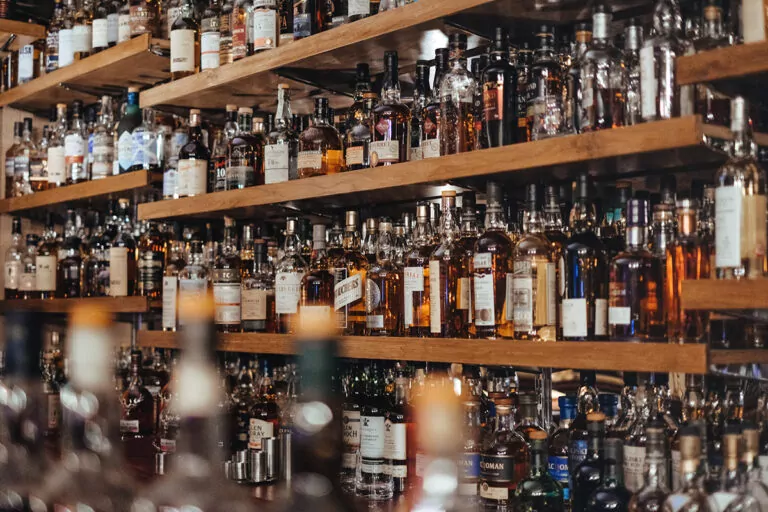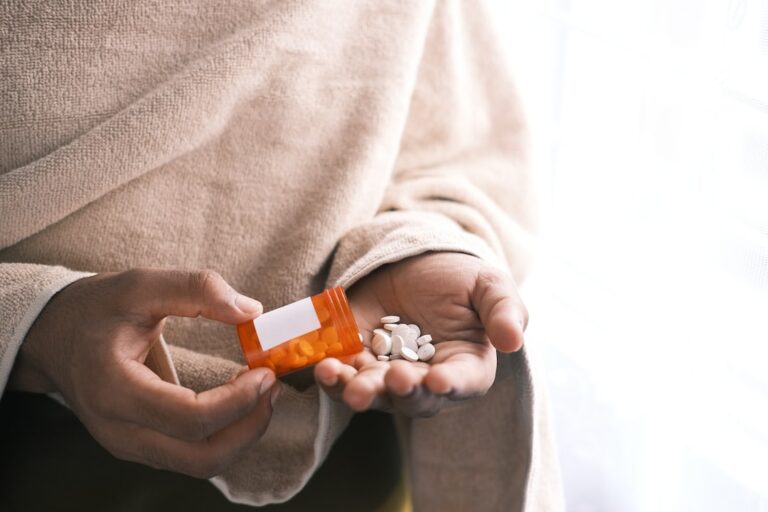When people develop a drug addiction, they often show specific patterns of thoughts, feelings, and behaviors. The Mayo Clinic provides a list of typical signs of addiction, such as spending more money on drugs than you can afford, experiencing powerful cravings, and struggling to abstain from use.
Among people with drug addiction, one common tendency is to blame others. Addicts often hold other people responsible for damaging behaviors and for the repercussions of substance misuse, such as job loss, broken relationships, and arrests. If they aren’t blaming other people, addicts may fault certain circumstances; for instance, they may claim they’re unlucky.
Why do addicts place the blame entirely on other people or external circumstances? There are usually multiple reasons.
They haven’t fully accepted that their addiction is a problem
When an addiction is relatively mild and isn’t interfering much with daily life, it may be easy for addicts to believe that they aren’t experiencing any problems. When the addiction worsens, and the associated behaviors and consequences become more severe, addicts may persist in the belief that their drug use isn’t as destructive as other people say it is.
They may avoid thinking about what they’re doing. They may downplay certain consequences and insist that they can stop whenever they want. If something goes wrong, it must be another person’s fault. Other people aren’t sufficiently loving, generous, or reliable.
Someone using a drug may also see it as a form of relief from what they consider to be larger problems. They may claim that their drug use makes them more focused, productive, or relaxed. Initially, the drug they’re using may give them feelings of profound warmth or intense pleasure. A research review published in 2018 found that between roughly 22 percent and 24 percent of people report using a drug as a self-medication technique for anxiety or mood disorders.
When people believe that a drug has been helping them, it may be harder for them to acknowledge the problems of sustained use. Pointing the blame away from the drug use is a technique to avoid thinking about the consequences of addiction.
They’re afraid of what will change in their lives
For various reasons, people experiencing drug addiction may not feel ready or able to stop using. Even if they admit that the drug use is destroying them, they may not want to confront the kinds of changes necessary to treat addiction.
If they go through addiction treatment, they’ll become fully aware of how much they depend on the drug. Along with experiencing withdrawal, they’ll struggle to confront the damage the drug has wrought on their physical health, cognitive functioning, and emotional well-being.
Once they stop using, they may need to repair relationships, find a new job, start school again, move to a different home, or undertake other difficult steps. They’ll also need to come up with strategies to prevent relapsing. All of these changes and plans can feel overwhelming and even terrifying. Addicts also need to cope with the fact that some of the destructive effects of addiction aren’t reparable. Some health problems may linger, and some relationships won’t be mended and restored to a previous level of closeness.
When addicts blame others, it’s a way for them to avoid taking all the necessary and difficult steps to examine themselves, treat their addiction, and rebuild their lives. The drug use, regardless of its horrible effects, becomes a crutch and a source of safe and familiar feelings.
They experience deep shame
People who are addicted to drugs experience shame for multiple reasons. They hate how hard it is for them to quit and how helpless they feel when hit with cravings. When thinking about how they speak and act under the influence, they may cringe with embarrassment.
Do you have a loved one struggling with addiction?
We know how hard that can be. Give us a call to find out what options you have.
They’re also ashamed of certain behaviors, such as forgetting to show up for a child’s birthday party or taking money from a parent’s wallet. If their drug use results in painful social repercussions, such as the end of a career or the end of their marriage, they feel ashamed about their current position in society and how much they’ve lost.
Shame also arises from the stigma around addiction. Even with the increasing awareness that drug addiction affects people from all backgrounds and walks of life, addicts continue to face mistreatment and a lack of understanding. They may have humiliating experiences when trying to seek medical help or psychological counseling.
Their Ego and Pride Get in the Way of Accepting the Addiction
Many individuals who struggle with drug or alcohol addiction will seek ways to shield themselves against external judgment as a way to protect their ego and pride. They think that pinning the blame for their addiction on others will save them from guilt-tripping themselves. While such individuals may be seen as stubborn, they are actually dealing with deep psychological turmoil.
Blaming others, as often seen in challenging daily life situations, can be easy because the person does not have to take ownership of their bad behavior. It becomes easy for them to justify why they indulge in drug and alcohol abuse and escape accountability or feeling responsible for the harm they do to themselves and, sometimes, others.
They Live in Denial of Their Condition
One of the primary reasons why people with drug abuse disorder may look outside themselves to lay blame on others is they are in denial about their addiction. Denial is a common defense mechanism among people with addictions that helps them evade the reality of their situation. When an addicted person blames another person, they can distance themselves from their problem and deny that it exists. They may go as far as to blame factors such as stress or genetics so they can avoid looking inward and evaluate their thoughts and feelings.
Denial is even more prevalent in the cases of alcohol use disorder. When people struggling with alcohol addiction are confronted about their drinking habits, their typical response will be to deny that they are consuming alcohol to an extreme and that it is a problem. They may blame their partner, spouse, or a loved one and blame them for overreacting. This behavior can also be seen with other people, such as family members and friends, who may encourage the addicted person to control their drinking.
Overdrinking does not only impact the person’s behavioral health but also damages their relationships, as the blame game can erode the foundations of love, respect, and understanding. The addicted individual can often feel attacked and get defensive, lashing out at those who care about them.
Address Blame With Empathy
When addicts blame other people or blame external circumstances, they’re often trying to deflect from their shame, embarrassment, or humiliation. Blaming others may be counterproductive and work against healing, but it can offer some temporary relief from a deeply rooted shame.
Should addicts ultimately blame themselves? Maybe blaming someone, whether yourself or others, isn’t the best way to fight addiction. It may be much more beneficial to let go of blame and instead shift to an attitude of responsibility and agency. Regardless of how an addiction develops, an individual can develop the capacity to seek treatment and treatment programs like detox to make lasting changes in their lives that help them stay off the drug.
Offering unconditional support and being compassionate can assure an addicted person that they are not being judged. It can create a safe environment to open a dialogue that takes the focus away from playing the blame game and toward unearthing the root cause of the substance use disorder. Destructive and harmful behaviors are often ways to mask people’s deep-seated issues, but an open and honest dialogue can be the much-needed starting point to begin the addiction recovery process.
Accessibility to supportive one-to-one interactions can help replace the tendency to blame others for substance abuse with a sense of responsibility and personal empowerment. It is a powerful way to acknowledge their pain and suffering while discouraging the continuity of the destructive cycle of blame and self-harm.




